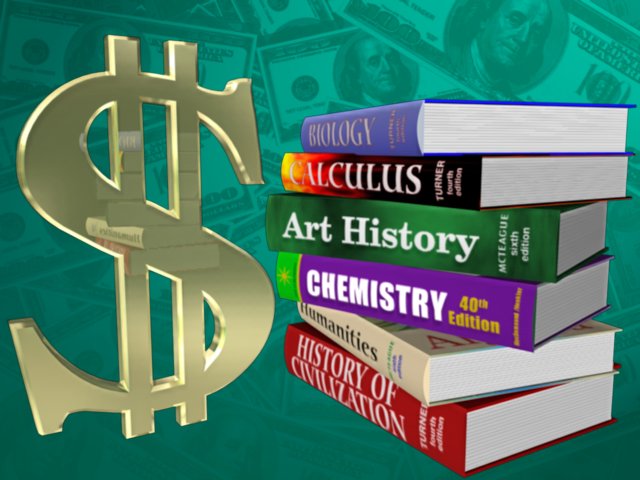Higher education in America being cheapened by free market greed

Alex Reyes/The Guardsman
When did price gouging become an established American way of life, and why do the American people allow it to continue?
Such questions came to mind as I stood in an impressively long line that snaked through Ocean campus’ main bookstore, holding a used paperback textbook that cost $51.
I know $51 is in the low to mid-range of academic textbook costs. A 392-page paperback history book I’ll also need this semester sells for $143 new and $101.25 used. Just renting the book for a semester costs $71.
I also know that the hyper-inflated cost of academic textbooks in the United States is an old story.
But I’m even older. I first went to college in 1975. This was the first time I was holding a used, medium-size, largely black-and-white book that cost as much as a new, oversized, four-color art book.
Despite my personal history, I believe education is a worthy and even noble human aspiration. I’ve been reading books on my own since elementary school and purchasing and reading them throughout my adult life.
I’ve even bought more than one of the large, colorful books mentioned above so that I could preserve the memory of being amazed by the genius on display in certain art exhibitions.
My problem with the non-descript $51 paperback in hand had nothing to do with paying an amount for a book well beyond my comfort zone. Rather, I felt outraged that the venerated realm of education has been cheapened in America by entrenched capitalist greed.
Once I reached a cashier I was still feeling torn about whether or not to pay the $51. I told the cashier I wasn’t going to purchase the book after she entered it into the system.
As we waited for a more senior cashier to void the sale, I decided that my need for the book was stronger than my desire to not enable such greed.
Later, I found a used copy of the $143 history book on sale online for $35 or so. Score! But not so fast.
Free marketeers tell us that prices are set by whatever the market will bear. But the market can often bear much more than human beings can handle.
In America, the market allowed for an economy based on the buying, selling, use and disposal of human slaves for over 100 years.
American businessmen required men, women and children to work 10 and 12 hour days, seven days a week, in substandard conditions well into the 20th century.
American bosses directed unprotected workers to handle asbestos-laden materials in construction trades, which led to an untold number of worker deaths.
Free market activities in America created so much air, land and water pollution that an Environmental Protection Agency was created to rein in such market dominion.
Today, of course, such free marketeers engage a legion of lobbyists to restrict the enforcement mechanisms of the EPA and every other government agency created to protect “we, the people” to the point of irrelevance.
Inflated costs for education, and for other human necessities such as health care, can seem trivial when compared with the other damages whatever the market will bear have wreaked on us and other people throughout the centuries. But greed is not good for those who cannot afford it.
A 2009 study published by the American Journal of Public Health found that nearly 45,000 Americans die each year due to a lack of health care coverage.
Those most in need of a college education can often not afford the cost of three square meals a day.
It is false, of course, to draw a distinction between the market, free marketeers and the American people, because we are the arch-capitalists of the world.
More Americans pledge allegiance to God, our warrior nation and capitalism than they do to the democratic ideals upon which the United States was founded.
Notions to “promote the general Welfare,” “ensure domestic Tranquility” and to “secure the blessings of liberty to ourselves and our posterity” are not market-proven ideals. Academic textbooks costing well over $100 are.
Welcome to the real world “Hunger Games.”

Comments are closed.